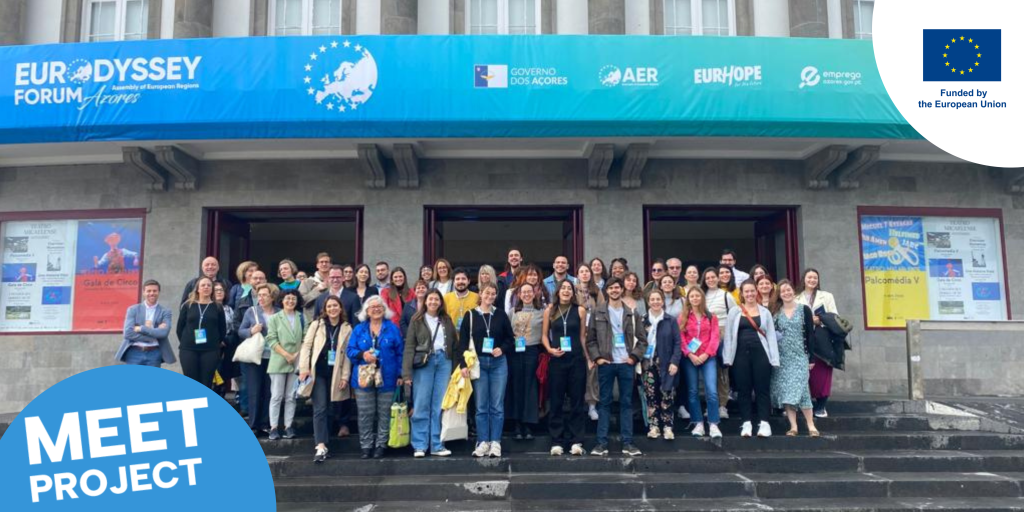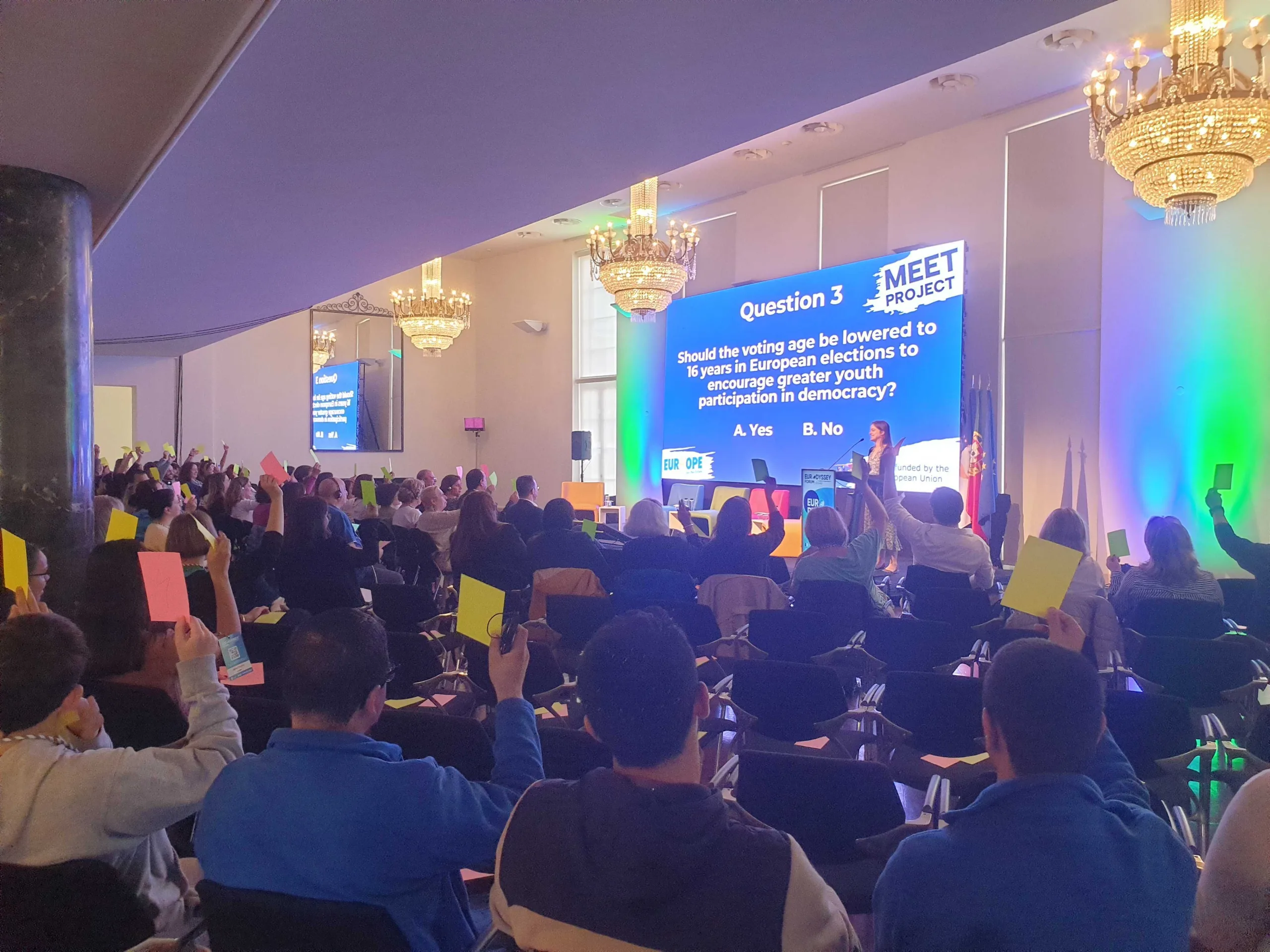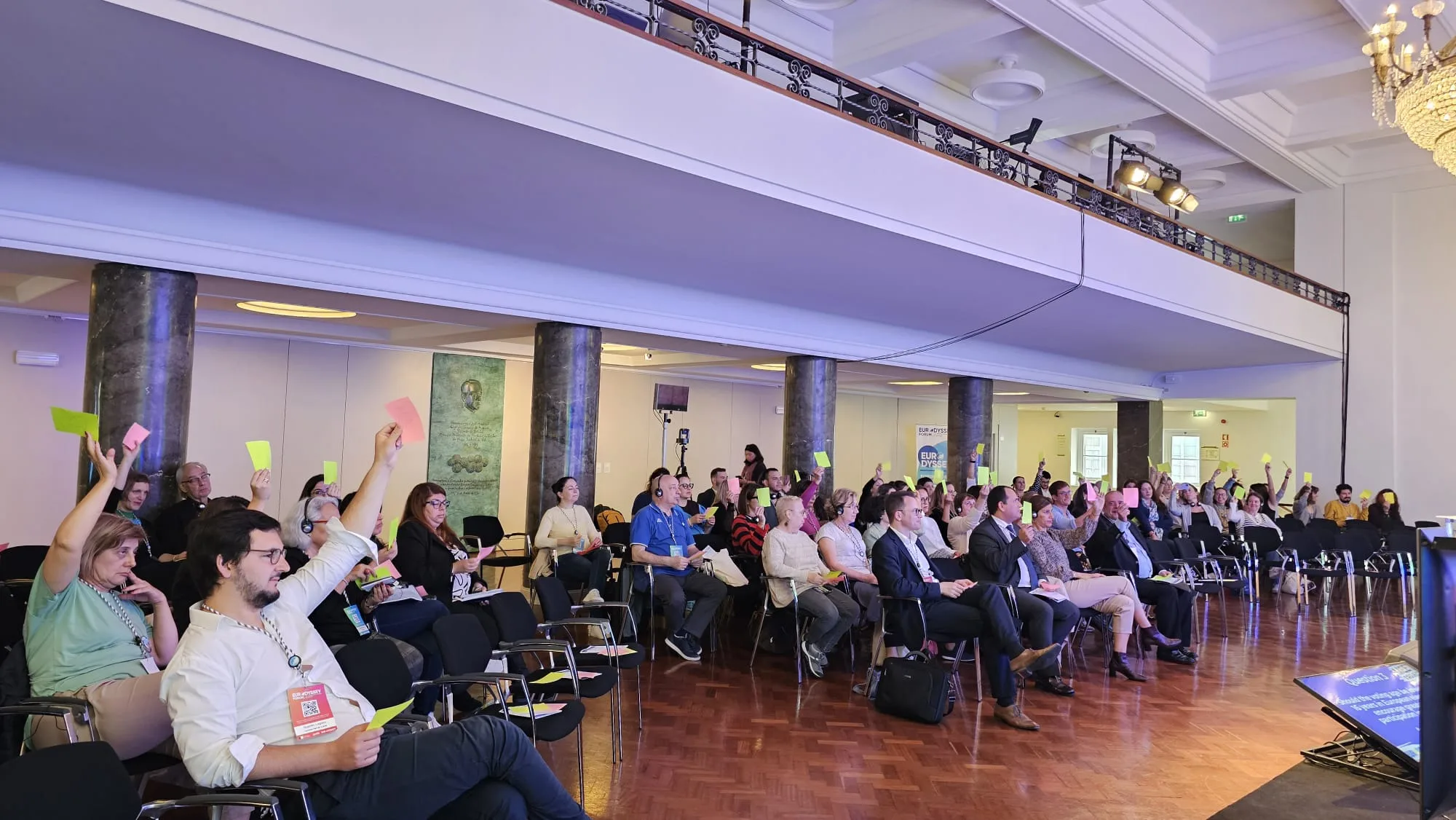 Share this!
Share this!The Eurodyssey Forum 2023, held in Ponta Delgada, Azores, Portugal, 6-9 November, was host of the first MEET Intergenerational Debate on the Future of Europe.
The First MEET Intergenerational Debate
The first Intergenerational Debate of the MEET project took place on the 8th of November in Ponta Delgada, Azores, Portugal. Here, approximately 100 participants from across Europe gathered to deliberate on the Future of Europe and the forthcoming 2024 EU elections.
Prior to the debate, participants had the opportunity to prepare for the discussion by addressing general questions related to the main topics. In order for the questions to be as engaging as possible, a unique, interactive method was used: Participants were given 2 coloured cards representing options “A” and “B”. Then, they were asked to respond to the questions on screen using one of the two cards accordingly. This activity proved beneficial for the debate, as all participants appeared delighted with the idea and eager to participate, thus creating a solid foundation for the debate to come.

Subsequently, to ensure effective organisation of the debate, participants were divided into four smaller, diverse groups. Each group was overseen by a facilitator who ensured equitable participation, making sure that every individual expressing an opinion was heard and their perspective acknowledged. Attendees were then invited to join the discussion divided into four main topics:
- The future of Europe and democracy
- The role of young people in the EU/ democracy
- Digitalisation & its challenges
- The differences between urban & rural areas
Each topic was carefully debated among the groups, leading to very interesting conversations on the European elections, youth participation, and the effects of digitalisation on citizen participation. The conclusions drawn by each group were then shared with the entire room by the facilitators, showcasing the many discrepancies and similarities in thinking displayed by all four teams.
Generally, all four groups agreed that there is a need for more active citizen participation in the elections and European politics in general, both at a national and a continental level. Most participants also expressed feelings of detachment and oftentimes confusion regarding the elections, explaining that they have very little information on the topic. This sentiment was especially popular among the young participants who claimed to be quite uninformed about this topic and very underrepresented in local, national, and European politics.
Furthermore, participants of all ages agreed that digitalisation has both benefits and disadvantages, allowing for information to travel more quickly, with the cost of frequent misinformation or fake news that could jeopardise the population’s view of politics, election and general aspects of Europe. The debate also concluded that the needs of those in rural areas are inherently different from those in urban areas, emphasising the need for a better-curated political strategy that can benefit both parties.
The MEET Intergenerational Debate in Azores was only the first of its kind, inaugurating the project and providing a good foundation for the following debates.

About the MEET Project
With Europe at a crossroads at the end of the Conference on the Future of Europe and in the middle of the implementation of the Green Deal and the digitalisation agenda, active European citizens must be at the forefront. In the period before the upcoming European elections, the MEET project offers space for diverse groups of European citizens to bring Europe to local level through a diverse set of activities encouraging continuous activism and interaction with European politicians. The project is led by the European Youth Forum (YFJ), and AER participates as a partner.
MEET meaningfully contributes to a depolarised and less-tense democratic space. This allows more participation, and more respect and understanding of others’ positions, ultimately helping revive the flagging belief in democracy as a system.
Check out the MEET project page for more information and future events!
The MEET project is funded by the Citizens, Equality, Rights and Values (CERV) 2021-2027 programme of the European Union.

